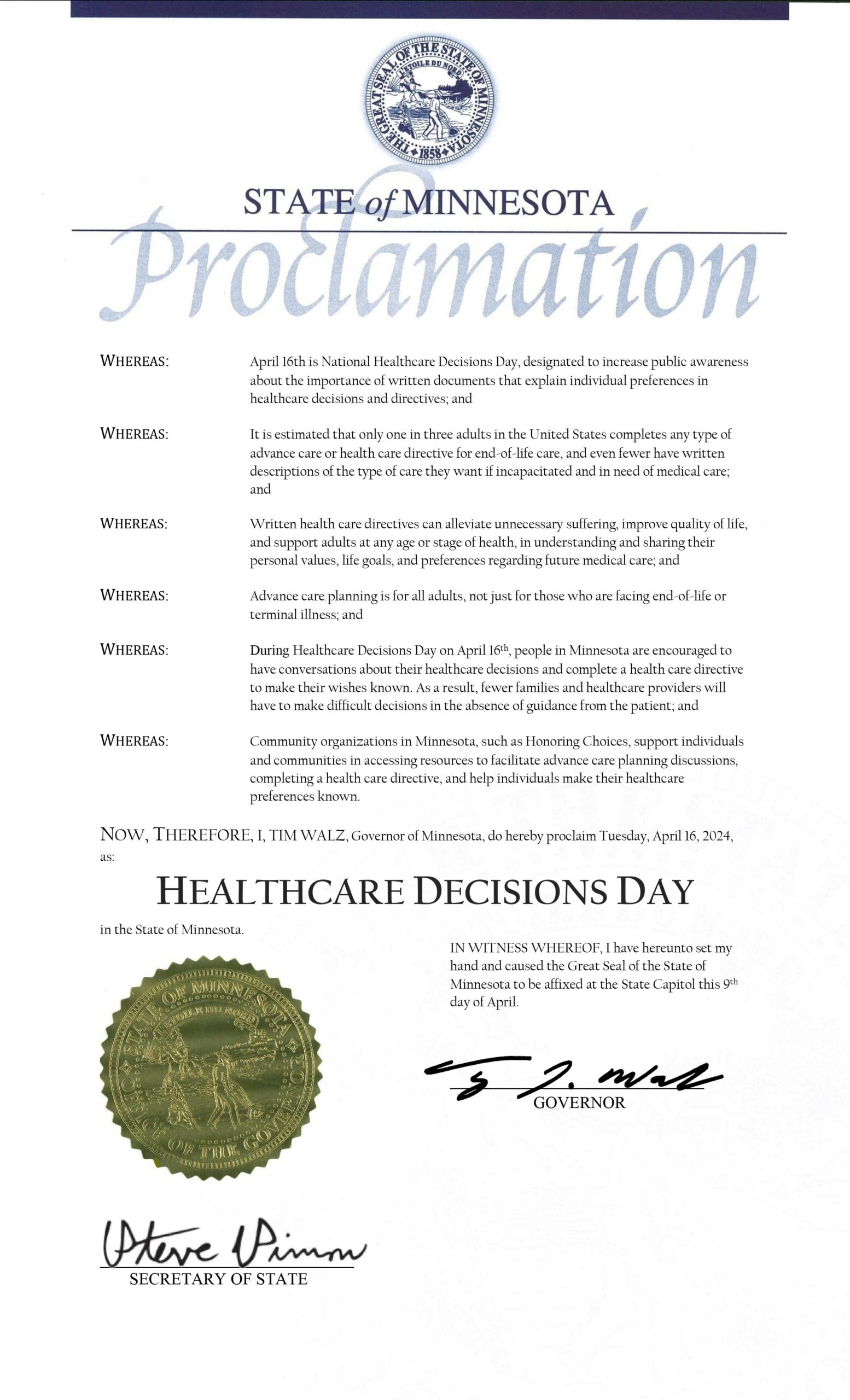Continued from Part 1.
Now for the important conclusion to this story!
Written By
Daniel J. Whitlock, MD
Judy A. Whitlock, RN
Calmly but firmly we assured them that if we were determined to be brain dead, every attempt would be made by the ICU team to make them understand and allow them to be as comfortable as possible, through the process of our dying. They could wait for others to arrive, as death should be a sacred and intimate time for families. And if Tim sees a “twinkle” in the eye, there will be someone, with empathy, available to talk with him – Tim does not have to suffer that perception, alone.
Another question: “Can they make us do this?”; a simple question but quite ambiguous, with a lot of overtones. We decided to sidestep this either-or scenario and talk about how an ICU and other less invasive units work, and how the staff approach shared decision-making.
So, we pulled back the curtain, about how an ICU works. First, we dispelled the myth that the decision is one person’s alone; one irritable doctor who hasn’t slept in the last 36 hours. This process is supported by a team of professionals; nurses, the managing physician, the neurologist who independently may perform testing, pharmacists who review all the medications and possible side effects, representatives of Spiritual Care to share their wisdom, other consultants involved in the case and possibly a Palliative Care physician.
The decision to approach the family with their options, is carefully discussed among the team and any dissent or questions are honored as part of this sacred responsibility. Protocols must have been faithfully followed, and multiple testing is done to rule out any doubt. The managing physician is usually the one delegated to talk to the family, usually accompanied by one or more nurses. And, not the least, the team will have our Advanced Directives, to guide a further discussion.
There are a multitude of questions but there are, also, many resources that a family can access when deeply held questions arise in the course of this shared decision-making.
A first recourse might to participate in a care conference, a sit-down meeting of family members with key team members. This meeting provides an opportunity to voice questions without the intrusion of life support machines or the routines of a busy unit. It’s a time in which pauses can speak volumes and empathy can reign, uninterrupted. Caregivers and loved ones can become one in purpose.
Another resource may be the hospital’s Ethics Committee. Family members can present their issues to this committee which consists of community members as well as uninvolved physicians, usually an attorney and medical administrator. Ethics Committees are not there to decide but are there to help clarify the issues and take them out of an adversarial arena.
Then Tim asked, “Do we need a lawyer?” We answered both “Yes” and “No”. Yes, only if you can identify an attorney who understands health care and end of life issues. Such a person can act as a bridge to the medical team and facilitate a true dialogue regarding the complicated issues. No, if you can muster trust and sensitive communication with the medical team. Helpfully, most Ethics Committees, have an attorney who might act as a resource to identify a community lawyer who might be helpful.
Finally, the goal should be “shared decision-making”. The family is grieving, and loss is at the center of their thinking. And this grief is, often, complicated by the late arrival of an estranged son or daughter who is challenging and disruptive. The danger is that the process can devolve into an adversarial one; family member against family member and family against medical team. This is a lose-lose situation. Our desire is for “Shared Decision-Making”. Toward that end we have prepared our advance directives as a guide for our family and ICU staff.
Furthermore, we told Travis, Tim and Mindy that the ICU medical team cares deeply about their patients. They also have their own issues, as the death of a patient is often experienced as their loss and personal failure. Shared decision-making is difficult and relies on a good faith effort of both sides, to understand each other’s issues and positions. When this process works it’s beautiful; when it doesn’t it’s mainly a disservice to the person who is dying.
The tone of the questions began to fade as Judy and I, entertained their questions. They could not have been expected to understand a complicated technical process they had never had the opportunity to experience. Silence slowly ensued between questions, as we looked into one another’s eyes. Finally, there was complete silence. We assured them that we would continue to engage them, as they needed. There were no questions too dumb to ask. We became part of each other, in our trust and hopefully with trust in the professionals who might be charged with our final care.
A family ambush had been avoided! We became one.

